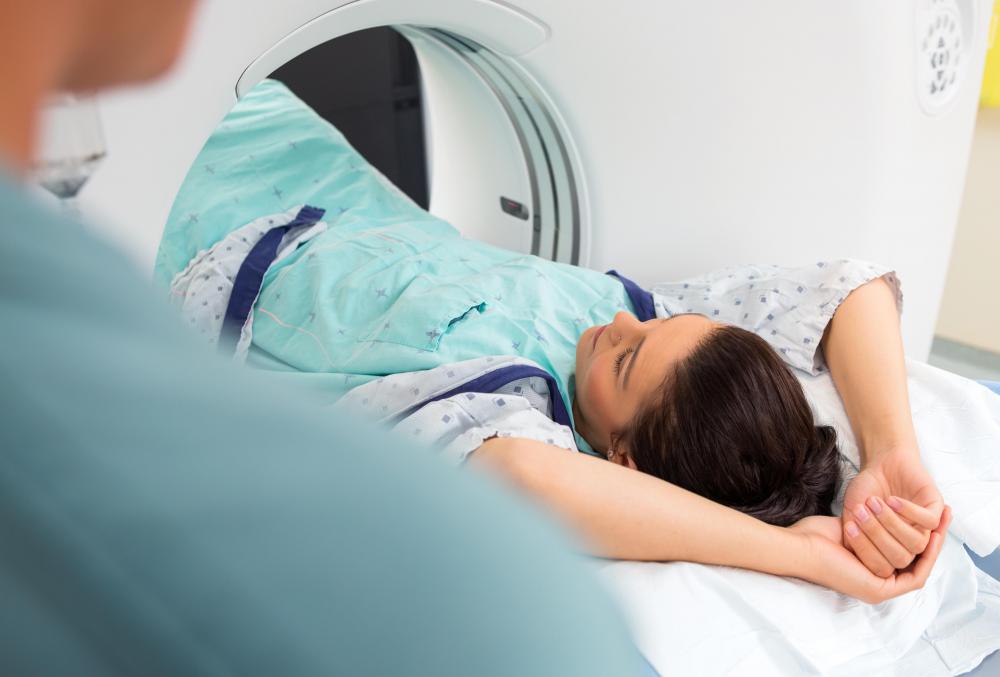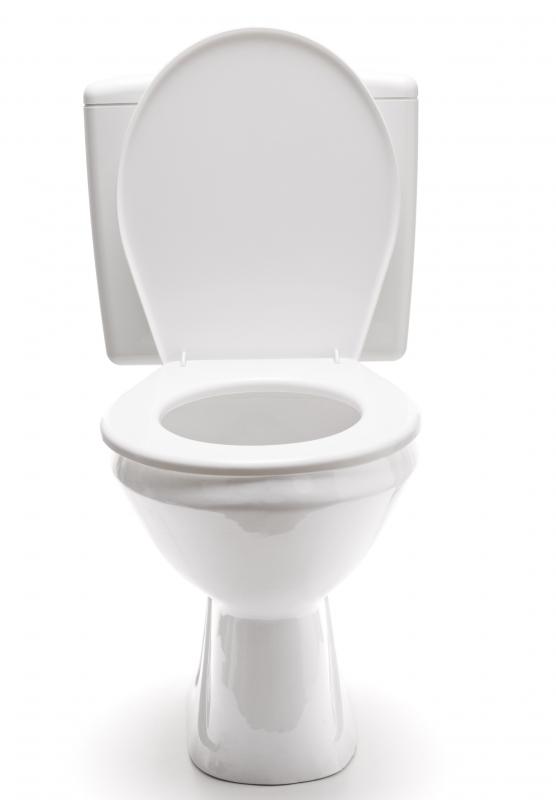At TheHealthBoard, we're committed to delivering accurate, trustworthy information. Our expert-authored content is rigorously fact-checked and sourced from credible authorities. Discover how we uphold the highest standards in providing you with reliable knowledge.
What is a Bowel Obstruction?
An intestinal blockage that impairs the passage of digestive contents is known as a bowel obstruction. Also known as an intestinal blockage, this condition may present partially or completely, depending on its origin. Treatment for the obstruction is dependent on the cause and extent of the condition and generally requires hospitalization. There are serious risks associated with a bowel obstruction, so individuals who experience symptoms should seek immediate medical attention to prevent a worsening of symptoms or potentially life-threatening complications.
The development of a bowel obstruction may occur one of two ways and manifest as either a partial or complete blockage. In cases where the bowel is blocked by some type of material matter, the condition is said to have a mechanical cause. When an obstruction is due to the impaired function of the bowel, and not a structural failure, the origin of the blockage is considered to be caused by paralytic ileus.

A mechanical cause, also known as mechanical obstruction, may originate in either the small or large intestine. The most common presentation for mechanical obstruction occurs in the small intestine and may originate with a hernia, tumor, or scar tissue. Mechanical obstructions of the large intestine are relatively uncommon. Several situations may contribute to the development of an obstruction of the large intestine and may include impacted feces, gallstones, and a stricture, or narrowing, of the intestine.

Bowel blockages that originate with paralytic ileus, also known as pseudo-obstruction, involve the failure of the large intestine to function properly in the absence of a physical obstruction. With the presence of paralytic ileus, the movement of the bowel may be sluggish or nonexistent, leading to a disruption of digestive function. In most cases, paralytic ileus manifests as a post-operative condition associated with abdominal surgery. Additional factors that may contribute to the development of this temporary condition include lung or kidney disease, use of certain prescription medications, and potassium deficiency.

Individuals who develop an intestinal obstruction may experience a variety of symptoms, including periodic abdominal cramping and chronic constipation. Abdominal distention and tenderness may also be signs of an intestinal obstruction. Additional signs may include flu-like symptoms, such as fever, nausea, and vomiting. Those who experience any of these symptoms should seek medical attention to prevent a worsening of symptoms or complication development.

Prior to confirming a diagnosis, a physician may ask several questions regarding the types of symptoms the individual is experiencing, including when symptoms first emerged. A complete medical history may be taken and a physical examination conducted to preliminarily assess overall health and check for any abdominal distention or discomfort. To confirm a diagnosis, additional testing may be performed, including a computerized tomography (CT) scan, ultrasound, or X-ray. Imaging testing is utilized to evaluate the nature and extent of the blockage.

Treatment for the obstruction usually requires hospitalization to stabilize the individual’s condition. Routine steps may be instituted, such as the placement of a catheter into the bladder and a nasogastric (NG) tube to aid with the intestinal decompression process. Treatment approach is entirely dependent on the cause of the individual’s condition. Individuals diagnosed with a mechanical obstruction and do not respond well to treatment may require surgery to remove the obstruction. If an individual is determined to have a complete obstruction, his or her condition is considered a medical emergency that necessitates immediate surgery to alleviate the blockage and restore proper bowel function.

When a bowel obstruction is left untreated, it can lead to severe, life-threatening complications. Decreased intestinal function may cause dehydration, shock, and kidney failure. Intestinal blockages may also reduce blood supply to the affected intestinal tissue, causing the starved tissue to die, a condition known as necrosis. A consequence of intestinal necrosis is the development of peritonitis, which results from a perforation, or tear, in the intestinal wall caused by the dying tissue.

Peritonitis is a serious condition that requires immediate medical attention and may result in death if ignored. Individuals with peritonitis may experience similar symptoms as associated with a bowel obstruction, including nausea, abdominal tenderness and distention, and chronic constipation. When peritonitis is left untreated, an individual may go into shock and experience symptoms that include pupil dilation, weakened pulse, and labored, shallow breathing. Shock is likewise considered a medical emergency requiring immediate treatment.

Individuals who have undergone any type of abdominal surgery may be at an increased risk for developing an intestinal obstruction due to the presence of post-operative scar tissue. Additional factors that increase an individual’s risk for developing a bowel obstruction include Crohn’s disease and frequent constipation. Individuals who have been diagnosed with cancers associated with the abdomen may also be at an increased risk for being diagnosed with an intestinal obstruction.
AS FEATURED ON:
AS FEATURED ON:




















Discussion Comments
I had a co-worker who had an intestinal blockage. When she had an x-ray, it showed a lot of stuck fecal matter.
The doctor gave her a strong laxative type of medicine to help soften the stool so she could pass it.
When I asked her about it, she said she had not been drinking a lot of water and the doctor told her to drink at least ten glasses of water a day to make sure she stayed hydrated.
I guess water is way more important than I ever thought!
Post your comments